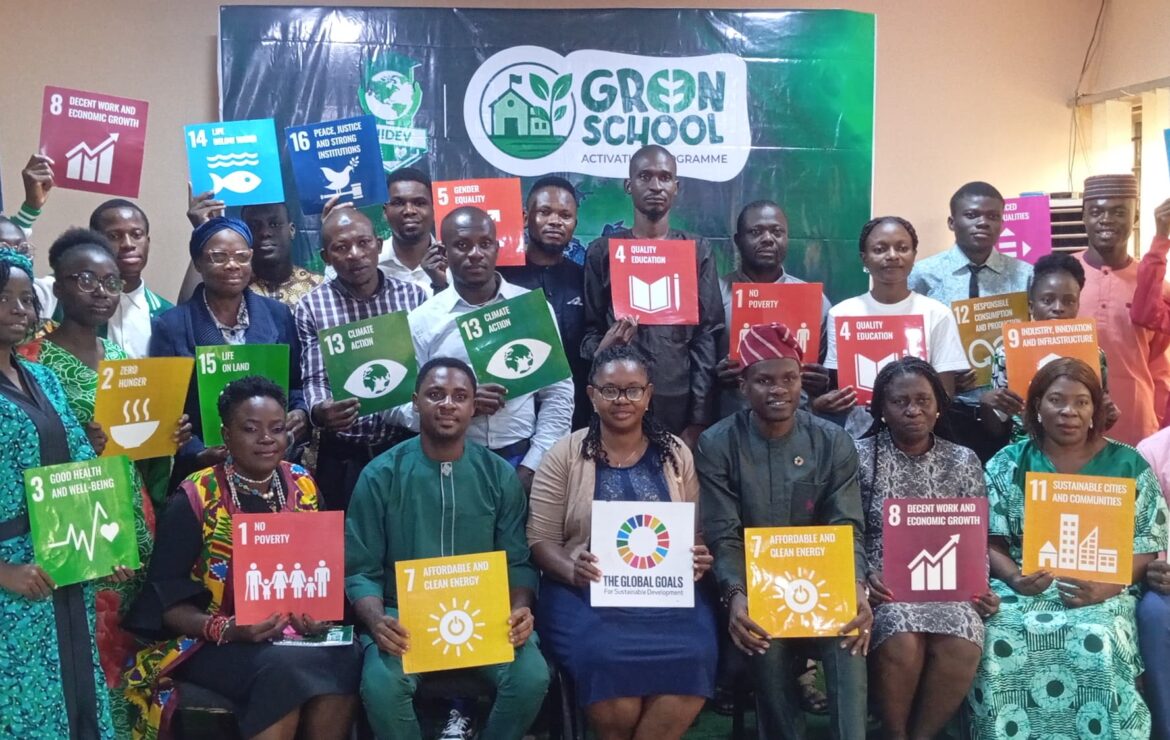Experts Push for Curriculum Reform to Embed Green Education in Nigerian Schools

Experts Push for Curriculum Reform to Embed Green Education in Nigerian Schools
Education and environmental experts have called for urgent reforms in Nigeria’s school curricula to mainstream environmental sustainability knowledge and foster eco-friendly practices among students.
The call was made at the Green School Activation Summit, organised by the Advance Initiative for International Development (AIIDEV) at the Centre for Sustainable Development (CEDEV), University of Ibadan, Oyo State.
The summit also marked the launch of the Green School Activation Programme, a pioneering initiative aimed at integrating green education and whole-school sustainability practices into secondary schools in Nigeria and across Africa.
Currently being piloted in the Federal Capital Territory, Lagos, and Oyo State, the programme has reached over 100 schools and trained more than 300 teachers. It employs a whole-school model that promotes green learning environments, food security through school gardening, climate education, eco-friendly infrastructure, innovation, and circular economy principles.
Delivering the keynote address on “Promoting Green Education and Whole School Approach in Nigeria,” the Dean, Faculty of Renewable Natural Resources, University of Ibadan, Prof. Adejoke Akinyele, lamented the worsening state of Nigeria’s environment, citing deforestation, pollution, and climate change as urgent concerns.
“Green education integrates environmental, economic, and social sustainability into the core of learning,” she said. Prof. Akinyele described the Whole-School-Approach model—which encompasses curriculum reform, eco-friendly facilities, school culture transformation, community engagement, and behavioural change—as “a proven strategy for embedding sustainability in the education system.”
She added that the initiative aligns with UNICEF’s Green School Programme by encouraging schools to “create green spaces, build resilient infrastructure, and champion student-led climate actions.” She further recommended “eco-clubs, tree planting, waste management systems, and renewable energy adoption” as practical steps schools should implement.
Regional Lead of AIIDEV Africa, Emmanuel Ola-Olowoyo, reaffirmed the organisation’s commitment to building a national movement for green education. “We are providing seeds, resources, and expert-led training for teachers,” he explained. “Each school should designate at least two agriculture teachers to lead sustainability efforts. We plan to monitor progress through annual reports and introduce competitions for the most eco-active schools.”
Other speakers shared practical approaches to sustainability. Founder of the Waste Museum, Ibadan, Mrs Adejumoke Olowokere, demonstrated how schools could “convert food waste into compost and use recycled materials such as Trawap as teaching aids.”
Executive Director of Plogging Nigeria, Mr Mayokun Iyaomolere, advised schools to start gradually. “Begin with small steps, conduct sustainability audits, and prioritise healthier, eco-friendly teaching environments,” he urged.
Also speaking, the Founding Director of the Centre for Housing and Sustainable Development, University of Lagos, Prof. Timothy Nubi, underscored the critical role of education in addressing Nigeria’s environmental challenges.
Meanwhile, National Focal Point of the Greening Education Partnership, Rahman Mogaj, unveiled the National Network of Accredited Green Schools, a new certification framework designed to “reward sustainable schools and connect them with resources and global collaborations.






